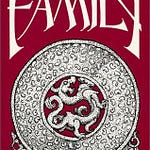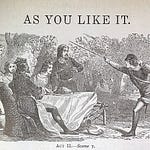I talk about a collection of short stories written by young writers in Gaza.
Below is the full script for the episode:
Today’s book is Gaza Writes Back: Short Stories from Young Writers in Gaza, Palestine, edited be Refaat Alareer, and published by Just World Books, a publisher that has put out a great deal of books about the Middle East, and about Palestine and Israel, including history books, biographies, works of fiction like this one, and even a cookbook called Gaza’s Kitchen.
Gaza Writes Back was published in 2013 to commemorate the fifth anniversary of Operation Cast Lead, also known as the 2008-09 Gaza War, a so-called war in which over 1000 Palestinians were killed, and 13 Israelis. The bombing and ground assault lasted 23 days, destroying over 11,000 homes.
These stories were written by university students, primarily women, and many of these stories were composed in Creative Writing classes taught by the editor, Refaat Alareer. Most of these works were written first in English, aside from two which were translated by other contributors. The idea here is direct communication with the international world; there is no mediator here between writer and reader — we are reading the words composed by Palestinians living in Gaza themselves.
All of this is facilitated by the internet. Many of these writers, prior to writing fiction, wrote blogs or wrote on social media about how they live and what goes on in Gaza, and learned English in order to communicate with, to inspire and be inspired by activists around the world. They are also inspired by previous Palestinian writers, including Edward Said who I’ve referenced on this program several times in the past.
These stories depict the everyday life of Palestinians in Gaza, many of whom are refugees from other parts of what is now Israel. The generation that wrote these stories is one or two generations removed from the 1948 Nakba or catastrophe that led to many Palestinian families being forced from their homes. These memories are stories to this generation: stories told to them by their parents or grandparents. The writers grew up in Gaza understanding that, although it is their home and all they know, it is also a transient place. Many of them grew up in refugee camps, for example, and survive through humanitarian aid provided by the UNRWA.
This home that can’t quite be a home leads to a yearning for things they have never even known. The idea of having land with which to grow crops or keep livestock to sustain one’s self is a common dream. Another dream is autonomy of movement, of being able to travel outside and come back — to not have each journey be one-way, taking one further and further from one’s home.
The stories in this collection are primarily small-scale. They do not attempt to depict wide-spread destruction or calamity. These are individual experiences: stories of families, or of neighbours. These are stories of one thing happening to one person — however, when you collect twenty writers writing about one thing happening to one person, and all these things and all these persons share more commonalities than differences, you end up expressing something larger. The Gaza experience is manifold, but it is also extremely limited.
As you might expect from a collection commemorating a military operation written by its victims, the primary theme carrying through these stories is grief. Many of these writers were still children during the events they depict, losing childhood friends, family members, or parents in an instant. The first story, L for Life, by Hanan Habishi, is about a young girl struggling to learn the ending of a bedtime story her father was telling her when IDF soldiers entered their home and shot him to death. This is not the only story in the collection about a young child whose father is shot to death in his own home.
Grief is a type of sadness, but of course it is about more than sadness. Grief is loss. In the shadows of these stories of grief are the joy, security, and comfort that have been taken away. Grief and anguish are ever-present in Gaza, but joy and hope are not extinct. Children play with their friends, families — when they have access to food, water and electricity — eat together, and students, like the ones who wrote these stories, learn about their world and about the greater world around them, with the hope that they can one day change it.
Hope pervades all these stories, even if they depict situations that seem hopeless. The very act of writing these stories is an act of hope. They share their experiences as a means of escape, as a means of taking control. They hope that we, the readers, will sympathize, and will share their stories further.
This collection is ten years old. The young writers who contributed are ten years older now. I’m thinking about these young writers today, many of whom are around my own age. These young writers are without food, electricity, or running water. Perhaps some of them are dead. Those that are alive might be fleeing their homes, homes which are targets for Israeli rockets, down highways that are also targets for Israeli rockets, to camps that are also targets for Israeli rockets. They might have children now, but their children might also be part of the more than 1000 Palestinian children who have been killed in the last week. Conversely, their children might be orphans.
I’m thinking about this new generation of Palestinian children, and the stories they will write in five or ten years time. Those stories will be remarkably similar to the stories in this collection. Their world is getting smaller and smaller, more tightly contained. Their experiences will continue to be characterized by grief, by the sudden and random deaths of friends and family members, and by a lack of autonomy. They too will dream of a particular freedom, a freedom so quaint that we take it for granted; the freedom to not have bombs dropped on their house — the freedom to not have soldiers walk into their living room and kill their dad. The freedom to live with even an ounce of security and comfort, to imagine a future that’s not a dream, and that’s not a nightmare.
These children too, will have hope.
Because Palestine is not just a keyword for tragedy. The love that is expressed in their grief is a love of their families and of their culture. A love of their favourite food, of their favourite songs, of weddings and holidays filled with joy and happiness. Palestine and the dream of Palestinians is not some strictly political ideal; it is not an intellectual abstraction. The life they want to live is real; it can exist — in many ways, it does exist. However, it exists under the threat and at the whim of an occupying military power.
Many aspects of this Palestinian dream are not so different from how many of us live right now. I don’t think a bomb is going to fall on my house tonight. In that sense, I am living that dream. Such a dream is not the result of political radicalism. The dream of a normal life becomes politically radical only when it is denied. What these stories depict is the constant and unrelenting ways in which this dream is denied, and what they express is that no matter how many times and no matter how emphatically it is denied, this dream will not die.
The Palestinian children of Gaza, of the West Bank and Occupied East Jerusalem, of Jordan, Syria, Lebanon, Egypt, of Europe and the Americas and Asia and around the world, will carry this dream. And hopefully, those of us that share this world with them will come together to help make it a reality.












Share this post